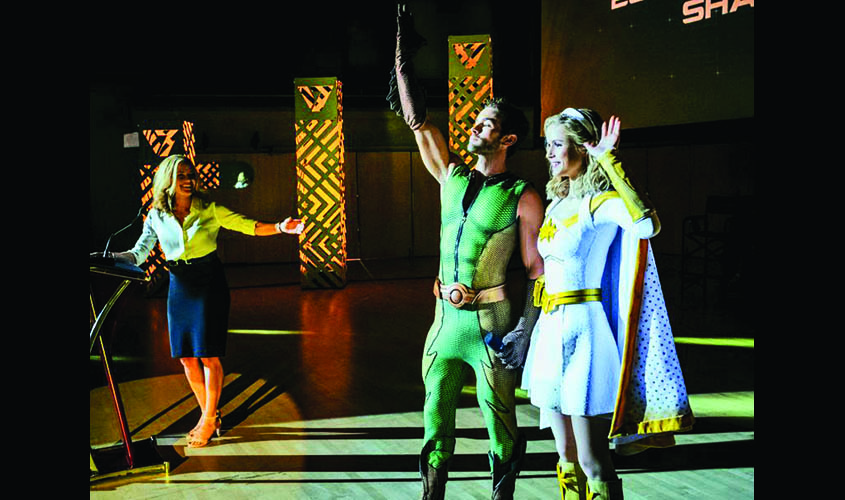At first glance, The Boys resembles that multitude of superhero blockbusters arriving once every few years. But look again and you will be surprised. For it is not your average superhero show. Instead, it fits into the Tarantino-esque genre of violent and amoral movies, which have found little success on the small screen.
The show set in a world full of corruption and moral perversion. The very first scene shows one of the heroes violently murdering our protagonist Hughie’s girlfriend, Robin. The gory scene paints a shocking image but also acts as a clue as to the very nature of the show.
The “superheroes” here are actually the bad people, the villains of this story. Hughie—played by the affable Jack Quaid—wants to avenge his girlfriend’s death. In this, he is helped by a contract killer named Billy “Butcher”—played by Karl Urban, of Star Trek fame.
These two characters, along with two other characters of dubious morality, are the eponymous “boys” of the show. And they take on a world of superhero-enabled corruption.

There are many comics-culture references in the show. The elite superhero group, 7, to comic-book fans will look like a carbon copy of a mix of D.C. and Marvel families. The tower in the middle of Manhattan—featured in The Boys—also looks like a spoof of Avengers Tower seen in the first Avengers film.
The show is also clued into contemporary times. A character called Stargirl suffers workplace harassment by a co-worker from the elite group 7. This segment provides a kind of commentary on the #MeToo movement and how forms of sexual violence have become all-pervasive in our time.
The satire is directed not just at contemporary society, but also at Hollywood and at corporate houses that have become rich by producing and rehashing superhero films. This is an multibillion dollar industry handled by, as one of the characters in the show says, “corporate lobbyists and politicians”.
The Boys is partly a response to this “superhero fatigue” in pop culture, and this nexus of corporate and celebrity cultures. According to the creator of the show, Eric Kripke, The Boys sets out to explore “what would happen if you combined the worst of celebrity with the worst of politics,” as reported by Variety.
The show has a tight script full of twists and turns, making for an ideal bingeing experience. The only letdown is the humungous amount of gore and violence portrayed here, which sometimes ends up eclipsing the other aspects of the narrative.
The actors have done a good job, even if the characters they are playing aren’t particularly complex. The cinematography is on a par with big blockbuster superhero movies. The climax is a cliff-hanger that builds enough suspense to get the audiences interested in the second season. Once you have seen The Boys, you will begin to find many superhero movies obsolete, overhyped and formulaic. It’s a welcome disruption of an age-old genre.
The Boys is now streaming on Amazon Prime Video

